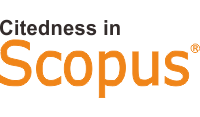Bibliometric Analysis of Publication Paper Themes for Hajj Services over the Period of COVID-19 Pandemic
DOI:
https://doi.org/10.46870/milkiyah.v2i2.440Keywords:
Hajj, Bibliometric, VOSviewerAbstract
The expansion of the literature is necessary. A significance of the framework of the current condition of Hajj service development is required. This study aims to provide an overview of the publication activities and trend of research in relation to Hajj services using bibliometric analysis. The method in this research used descriptive statistical tools with meta-analysis employing bibliometric analysis of secondary data from 142 papers published during the period of the COVID-19 pandemic, from 2019 to 2022. The development trends of hajj service publications were also evaluated using the VOSviewer program. This study found that the number of research publications on the Hajj services has increased in the last four years (2019-2022) indicating that themes regarding Hajj services show uptrend patterns. These seem to lead scholars to provide contributions to the body of knowledge. In addition, the interest of scholars has been shifting toward topics related to digitalization systems.
References
Abbas, A., & Abdulrahman, M.M. (2023). About Scholarly Works in the Field of Islamic Economic Law: A Visualization of Related Topics. Milkiyah: Jurnal Hukum Ekonomi Syariah, 2(1), 46-55. https://doi.org/10.46870/milkiyah.v2i1.267.
Alaska, Y. A., Aldawas, A. D., Aljerian, N. A., Memish, Z. A., & Suner, S. (2017). The impact of crowd control measures on the occurrence of stampedes during Mass Gatherings: The Hajj experience. Travel Medicine and Infectious Disease, 15(September), 67–70. https://doi.org/10.1016/j.tmaid.2016.09.002
Aldossari, M. R., Aljoudi, A., & Celentano, D. (2019). Health issues in the hajj pilgrimage: A literature review. Eastern Mediterranean Health Journal, 25(10), 744–753. https://doi.org/10.26719/2019.25.10.744
Alghamdi, S. M., Alsulayyim, A. S., Alqahtani, J. S., & Aldhahir, A. M. (2021). Digital health platforms in saudi arabia: Determinants from the COVID-19 pandemic experience. Healthcare (Switzerland), 9(11), 1–7. https://doi.org/10.3390/healthcare9111517
Alharthi, N., & Gutub, A. (2017). Data Visualization to Explore Improving Decision-Making within Hajj Services. Scientific Modelling and Research, 2(1), 9–18. https://doi.org/10.20448/808.2.1.9.18
Alnabulsi, H., Drury, J., & Templeton, A. (2018). Predicting collective behaviour at the Hajj: Place, space and the process of cooperation. Philosophical Transactions of the Royal Society B: Biological Sciences, 373(1753). https://doi.org/10.1098/rstb.2017.0240
Alqahtani, A. S., Althimiri, N. A., & BinDhim, N. F. (2019). Saudi Hajj pilgrims’ preparation and uptake of health preventive measures during Hajj 2017. Journal of Infection and Public Health, 12(6), 772–776. https://doi.org/10.1016/j.jiph.2019.04.007
Alrefaei, A. F., Almaleki, D., Alshehrei, F., Kadasah, S., ALluqmani, Z., Abdulaziz alotaibi, Alsulaimani, A., Aljuhani, A., & Alruhaili, A. (2022). Assessment of health awareness and knowledge toward SARS-CoV-2 and COVID-19 vaccines among residents of Makkah, Saudi Arabia. Clinical Epidemiology and Global Health, 13, 100935. https://doi.org/10.1016/j.cegh.2021.100935
Ebrahim, S. H., & Memish, Z. A. (2020). COVID-19 – the role of mass gatherings. Travel Medicine and Infectious Disease, 34(March), 101617. https://doi.org/10.1016/j.tmaid.2020.101617
Eck, N. J. van, & Waltman, L. (2009). How to normalize co-occurrence data? An analysis of some wellknown similarity measures. Journal of the American Society for Information Science and Technology, 60(8), 1635–1651. https://doi.org/10.1002/asi.21075
Fathurrahman, R., Abidin, Z., & Utami, A. D. (2021). Public Service Satisfaction on Hajj-Related Services in Indonesia: Demographic Analysis. Al-Muzara’Ah, 9(1), 99–107. https://doi.org/10.29244/jam.9.1.99-107
Felemban, E. A., Rehman, F. U., Biabani, S. A. A., Ahmad, A., Naseer, A., Majid, A. R. M. A., Hussain, O. K., Qamar, A. M., Falemban, R., & Zanjir, F. (2020). Digital Revolution for Hajj Crowd Management: A Technology Survey. IEEE Access, 8, 208583–208609. https://doi.org/10.1109/ACCESS.2020.3037396
Gautret, P., Al-Tawfiq, J. A., & Hoang, V. T. (2020). COVID 19: Will the 2020 Hajj pilgrimage and Tokyo Olympic Games be cancelled? Travel Medicine and Infectious Disease, 34(March), 1–2. https://doi.org/10.1016/j.tmaid.2020.101622
Hoang, V. T., Gautret, P., Memish, Z. A., & Al-Tawfiq, J. A. (2020). Hajj and Umrah Mass Gatherings and COVID-19 Infection. Current Tropical Medicine Reports, 7(4), 133–140. https://doi.org/10.1007/s40475-020-00218-x
Hussain, O., Felemban, E., & Ur Rehman, F. (2021). Optimization of the Mashaer Shuttle-Bus Service in Hajj: Arafat-Muzdalifah Case Study. Information (Switzerland), 12(12), 1–15. https://doi.org/10.3390/INFO12120496
Jokhdar, H., Khan, A., Asiri, S., Motair, W., Assiri, A., & Alabdulaali, M. (2021). COVID-19 Mitigation Plans during Hajj 2020: A Success Story of Zero Cases. Health Security, 19(2), 133–139. https://doi.org/10.1089/hs.2020.0144
Khan, A., Alahmari, A., Almuzaini, Y., Alturki, N., Aburas, A., Alamri, F. A., Albagami, M., Alzaid, M., Alharbi, T., Alomar, R., Tayli, M. A., Assiri, A. M., & Jokhdar, H. A. (2021). The role of digital technology in responding to COVID-19 pandemic: Saudi Arabia’s experience. Risk Management and Healthcare Policy, 14, 3923–3934. https://doi.org/10.2147/RMHP.S317511
Khan, E. A., & Shambour, M. K. Y. (2018). An analytical study of mobile applications for Hajj and Umrah services. Applied Computing and Informatics, 14(1), 37–47. https://doi.org/10.1016/j.aci.2017.05.004
Peters, F. . (1995). The Hajj : The Muslim Pilgrimage to Mecca and The Holy Places. USA: Princeton University Press.
Rahman, J., Thu, M., Arshad, N., & Van der Putten, M. (2017). Mass Gatherings and Public Health: Case Studies from the Hajj to Mecca. Annals of Global Health, 83(2), 386–393. https://doi.org/10.1016/j.aogh.2016.12.001
Rahman, S. M., Ratrout, N., Assi, K., Al-Sghan, I., Gazder, U., Reza, I., & Reshi, O. (2021). Transformation of urban mobility during COVID-19 pandemic – Lessons for transportation planning. Journal of Transport and Health, 23(August), 101257. https://doi.org/10.1016/j.jth.2021.101257
Shambour, M. K., & Gutub, A. (2021). Personal Privacy Evaluation of Smart Devices Applications Serving Hajj and Umrah Rituals. Journal of Engineering Research, 1–22. https://doi.org/10.36909/jer.13199
Taibah, H., Arlikatti, S., & Andrew, S. (2018). Risk communication for religious crowds: preferences of Hajj pilgrims. Disaster Prevention and Management: An International Journal, 27(1), 102–114. https://doi.org/10.1108/DPM-09-2017-0215
Downloads
Published
How to Cite
Issue
Section
License
Copyright (c) 2023 Milkiyah: Jurnal Hukum Ekonomi Syariah

This work is licensed under a Creative Commons Attribution-NonCommercial 4.0 International License.

















